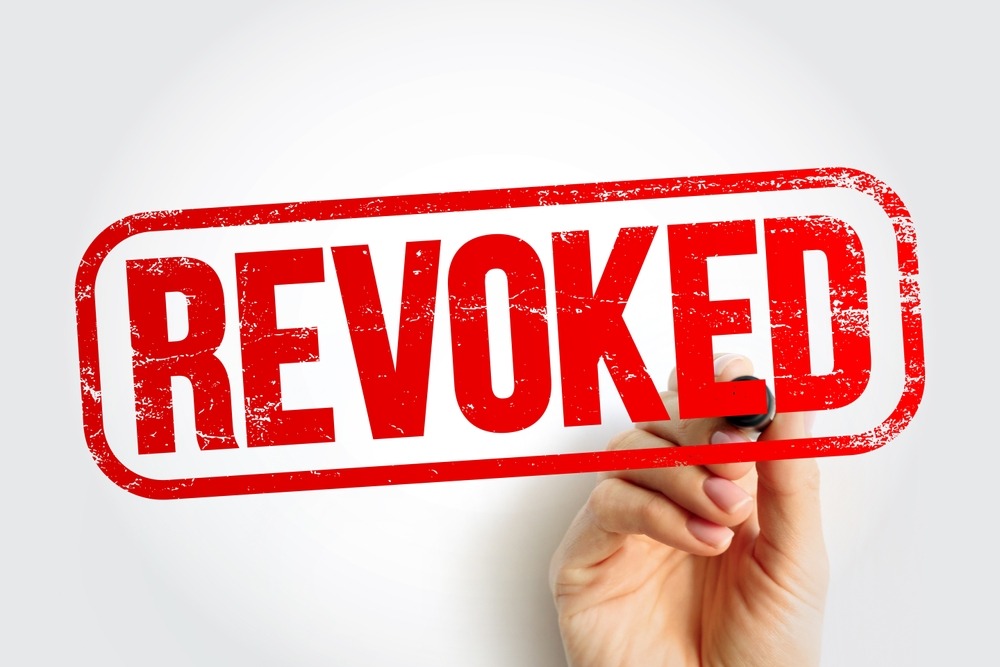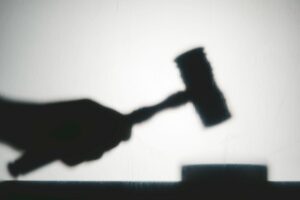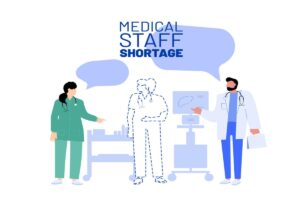As a licensed professional, you are held to a high standard of ethical and legal conduct in your practice. However, there may be times when misconduct accusations are brought against you, resulting in license revocation or another form of disciplinary action.
This can be an unnerving experience, but it is important to understand the process and your rights. Contact a professional license defense lawyer from Bertolino LLP to discuss any accusations against you that could lead to disciplinary action, including revocation of your license, and what you should do if you are facing these allegations.
What Are Accusations that Can Lead to License Revocation or Another Form of Disciplinary Action?
An accusation that can result in disciplinary action typically stems from a complaint filed against you with your licensing / regulatory agency, in which the agency seeks to punish you for any unprofessional conduct. It usually begins with an investigative process by the regulatory agency, which may involve:
- Reviewing client complaints.
- Interviewing witnesses.
- Examining evidence.
If the regulatory agency believes you engaged in misconduct, they may file formal accusations against you with the intent to revoke your professional license.
The document they file will typically outline the alleged offense(s), including misconduct, negligence, ethics charges, or violation of laws and regulations. It will also describe the facts supporting these accusations.
You will be able to respond to the charges and provide evidence in your defense. Depending on the nature and severity of the alleged misconduct, the case may go to an administrative hearing, where a judge will hear arguments from both sides and make a decision about whether misconduct occurred and what disciplinary action should be taken.
What Is License Discipline?
License discipline refers to the penalties imposed for misconduct by a licensing or regulatory body on a licensed professional.
The specific penalties will vary depending on the type of misconduct, the severity of the offense, and the regulatory agency involved.
Types of License Discipline
Disciplinary actions can range from less severe to more severe, depending on the gravity of the alleged offense. They may include:
- A letter of reprimand: A formal written warning indicating that the behavior was unacceptable and must not be repeated.
- Fines: Monetary penalties may be imposed for less severe violations.
- Probation: You can continue practicing but must adhere to specific conditions, such as additional training or regular reporting to the licensing body.
- License suspension: Your professional license is suspended for a period of time during which you are not permitted to practice.
- Revocation: The most severe form of disciplinary action, which permanently takes away your license and removes your right to practice.
License discipline is critical for maintaining quality and credibility in professional fields. However, if you are facing disciplinary action, the stakes are high. This makes it essential to understand the process and your legal rights.
Reasons You may Face Disciplinary Action, Including Revocation of Your License
Accusations that could lead to the revocation of your professional license or another form of disciplinary action are serious. Understanding the grounds for these actions can help you proactively safeguard your career.
Here are common accusations that can lead to disciplinary action:
Violations of Standard of Care
Failure to meet the generally accepted standard of care in your profession can lead to disciplinary action. This can include making avoidable errors in treatment or neglecting to follow recognized processes, procedures or employ recognized methods or techniques.
Inaccurate Dispensing or Prescribing of Medication
Mistakes in prescribing or dispensing medication or delegating prescriptions improperly can have severe consequences for patients and are grounds for disciplinary action against healthcare professionals like doctors, physician assistants, nurses, dentists and pharmacists.
Violating Confidentiality Agreements
Breaching client or patient confidentiality can result in serious repercussions, including losing your professional license. This violation can include discussing confidential matters or disclosing sensitive documents improperly to third parties.
Professional Misconduct
Engaging in unethical practices such as fraud, deceit, embezzlement or dishonesty can be grounds for revocation or suspension of your license.
Negligence or Incompetence
Another common reason for disciplinary action is failing to meet the required standards of your profession due to negligence or incompetence. This could range from providing subpar services to making grave errors in judgment.
Criminal Convictions
Being convicted of a crime, particularly one related to professional duties, can lead to immediate disciplinary action, including license revocation.
For example, Texas Occupations Code § 53.021 gives licensing authorities the right to take adverse action against people who hold or apply for an occupational license if convicted of certain criminal offenses.
Substance Abuse or Addiction
Problems with substance abuse or addiction can impair your ability to perform your professional duties and lead to disciplinary action if discovered by your regulator.
Legal Issues
Civil judgments against you that relate to your professional conduct can also be a reason for occupational license revocation or suspension. This can include malpractice lawsuits, violations of state or federal laws, or other legal issues connected to your profession.
Financial Irregularities
Issues related to your profession, such as embezzlement, fraud, past due taxes or other financial misconduct, can lead to disciplinary actions and even criminal charges.
Failure to Complete Continuing Education or Training
Many professions require ongoing education or training to maintain a license. Failure to meet these requirements can result in disciplinary action.
Understanding the common grounds for license revocation or other forms of discipline can help you take preventative steps to secure your career. If you face such accusations, consult a professional license defense lawyer immediately to discuss your options.
Click to contact our professional license defense lawyers today
What You Should do if You are Facing Disciplinary Action Up to and Including License Revocation
Facing accusations that could lead to the revocation of your professional license or other disciplinary action is a severe matter that can have a lasting impact on your career. If you find yourself in this situation, here are the steps to consider:
Consult a Professional License Defense Lawyer Immediately
When you become aware of a complaint or investigation against you, consult a professional license defense lawyer right away. They can help guide you through legal complexities and will represent you in any formal hearings or meetings with the regulatory agency. They will also advocate for your rights, make arguments to fight for your license and present evidence in your defense.
Do not Speak to Investigators without Legal Counsel
It might be tempting to clear your name immediately by talking to investigators, but remember, anything you say can be used against you. Always consult your lawyer before speaking to anyone about the case.
Understand the Charges and Evidence
Obtain all the documents, reports, and evidence related to the complaint. Understanding the specifics can help you and your lawyer devise a more effective defense strategy.
Cooperate with Legal Counsel
Open and honest communication with your lawyer is crucial. Provide all the relevant information and documents to help them prepare a strong defense for you.
Prepare Your Defense
Your lawyer will likely want to collect evidence that counteracts the complaint. This could include testimonials from colleagues and patients, your employment history, and records demonstrating your competency and professionalism.
Understand Your Rights and Options
Each profession has specific rules, regulations, and procedures for disciplinary action. Ensure you understand these so you can comply with them, challenge them if needed, and choose the best course of action.
Attend All Required Meetings and Hearings
Being present and punctual for all legal proceedings and administrative hearings demonstrates your commitment to resolving the issue and allows you to stay updated on your case’s progress.
You do not want the agency staff or judge to take action against you by default in your absence, so it’s important to attend all proceedings, hearings and appointments.
Comply with Board Disciplinary Actions if Required
If penalties are inevitable, cooperate fully with the disciplinary process to show your commitment to upholding the standards of your profession. This could influence future decisions related to your license.
Seek Reinstatement or Appeal if Applicable
If the worst-case scenario happens and your license is revoked, discuss with your lawyer the possibilities for appealing the decision or getting your license reinstated under specific conditions.
Plan for Your Future
Facing disciplinary action can be stressful and humbling. Use this time as an opportunity to reassess your professional goals, make necessary improvements, and ensure you continue meeting the standards of your profession.
Being proactive and informed can make a significant difference in the outcome of your case. Consult a professional license defense lawyer at Bertolino LLP to manage the challenging process of defending your license and career.
Complete a Case Evaluation form now
What to do to Prevent Accusations of Misconduct
Preventing accusations of misconduct is always the best course of action. Below are steps to minimize the risk of misconduct accusations.
Stay Up to Date with Regulations and Ethical Guidelines
Regularly review the regulations and ethical guidelines that apply to your profession to ensure you are in compliance.
Maintain Clear Communication with Clients or Patients
Be transparent about your services and any potential risks or limitations, and ensure your clients or patients understand their rights and obligations.
Document Your Work Carefully
Keep accurate records of all communications, services provided, and any other relevant information. This can help protect you in case of a dispute or accusation.
Seek Advice and Guidance When Needed
If you are unsure about the legality or ethics of a particular situation, seek advice from a trusted colleague, mentor, or legal professional.
Being proactive and careful in your work can reduce the risk of misconduct accusations.
Key Components of an Effective Compliance Program
Compliance programs are designed to help professionals avoid misconduct and comply with ethical and legal standards. They can be an effective way to prevent misconduct accusations and protect your license. The following are key components of a compliance program:
- Policies and procedures: One of the foundational elements of an effective compliance program is the establishment of clear policies and procedures. These guidelines should outline ethical and legal standards relevant to your profession, providing a roadmap for compliance.
- Training and education: A compliance program can only be effective if everyone involved understands it. Training and education on your program’s policies and procedures are essential for ensuring all staff or colleagues know their responsibilities.
- Monitoring and auditing: Consistent oversight is crucial for a compliance program’s success. This involves regularly monitoring and auditing activities to verify compliance with established policies and procedures and identify any areas that may require improvement.
- Reporting and corrective action: To fully implement a compliance program, there must be mechanisms for reporting violations and taking corrective action. This could involve disciplinary measures or revisions to policies and procedures to prevent future violations.
By following these key components, you can build an effective compliance program demonstrating your commitment to ethical and legal conduct, reducing the risk of accusations that could jeopardize your professional license.
The Importance of Legal Representation
If you are facing the possibility of license revocation or other disciplinary action, it is critical to have legal representation. Below are the reasons why:
Attorneys are Experienced in Administrative Law and License Defense
An experienced lawyer will understand your profession’s intricate legal and regulatory framework and can help you manage it effectively.
Attorneys Can Provide Objective Advice and Guidance
Accusations of misconduct can be emotional and stressful, but an attorney can provide objective advice and guidance based on their experience and knowledge.
Lawyers Can Protect Your Rights and Advocate for Your Best Interests
A license defense attorney will work to protect your license and minimize the penalties you face. They can represent you in hearings, make evidence and technical, legal arguments on your behalf, negotiate with the regulatory agency, and help you understand your options at every stage.
Having a skilled and knowledgeable license defense attorney can increase your chances of a positive outcome in your case.
Act Now to Safeguard Your Professional Future
Accusations of misconduct can lead to disciplinary action, including revocation of your professional license. This can disrupt your career, harm your reputation, and even derail your livelihood. Waiting to take action can lead to irreversible consequences.
If you are facing allegations that put your professional license at risk, consult a professional license defense attorney at Bertolino LLP immediately. Our team will guide you through the legal processes, advocate for your rights, and build a strong defense strategy tailored to your situation.
The key to safeguarding your professional future starts with acting today. Contact Bertolino LLP to discuss your needs and explore how we can aggressively fight for you, your license and your career.
Call or text (512) 476-5757 or complete a Case Evaluation form






